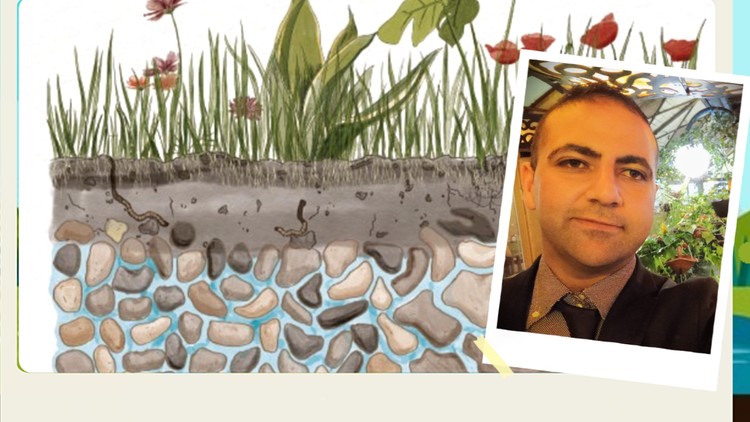
Learn the Fundamentals of Groundwater: Hydrology, Aquifers, and Flow Dynamics
What you will learn
Understand the Basics of Groundwater
Describe the Hydrologic Cycle
Identify Components of Drainage Basins
Analyze Regional Groundwater Balance
Explore Groundwater Geology
Differentiate Types of Aquifers
Classify Aquifer Systems
Explain Porosity in Groundwater
Evaluate Hydraulic Properties of Earth Materials
Understand Hydraulic Head and Storage Coefficient
Learn about hydraulic head, groundwater storage, and aquifer-specific storage capacities.
Apply Darcy’s Law and Hydraulic Conductivity Concepts
Analyze groundwater flow rates, transmissivity
Hydraulic Conductivity in Anisotropy and Heterogeneity
Examine the Unsaturated Zone – Define the unsaturated zone, infiltration, recharge,
Analyze the Saturated Zone
Learn the Fundamentals of Groundwater Modeling
Why take this course?
Groundwater is one of the most valuable natural resources, providing fresh water for drinking, agriculture, and industry. This course, Learn the Basics of Groundwater – Level 1, introduces you to the fundamentals of groundwater hydrology, aquifers, and water movement through subsurface environments. Whether you are a student, researcher, or environmental professional, this course will provide a strong foundation in understanding how groundwater functions within the hydrologic cycle.
You will start by exploring the definition of groundwater, its role in the Earth’s hydrologic cycle, and its relationship with surface water bodies such as rivers, lakes, and oceans. We will also discuss drainage basins, water storage, and the factors influencing groundwater recharge and discharge.
‘;
}});
Next, we will cover aquifer types, including confined, unconfined, and perched aquifers, along with their significance in water storage and movement. You will also learn about porosity, permeability, and hydraulic conductivity, which are crucial in determining how water flows through different geological formations.
Additionally, the course introduces basic groundwater modeling techniques such as MODFLOW, helping you understand how groundwater systems are analyzed and managed. By the end of this course, you will gain valuable knowledge to apply in environmental sciences, hydrogeology, and water resource management.
No prior experience is needed—just a curiosity about groundwater and its essential role in our world!
